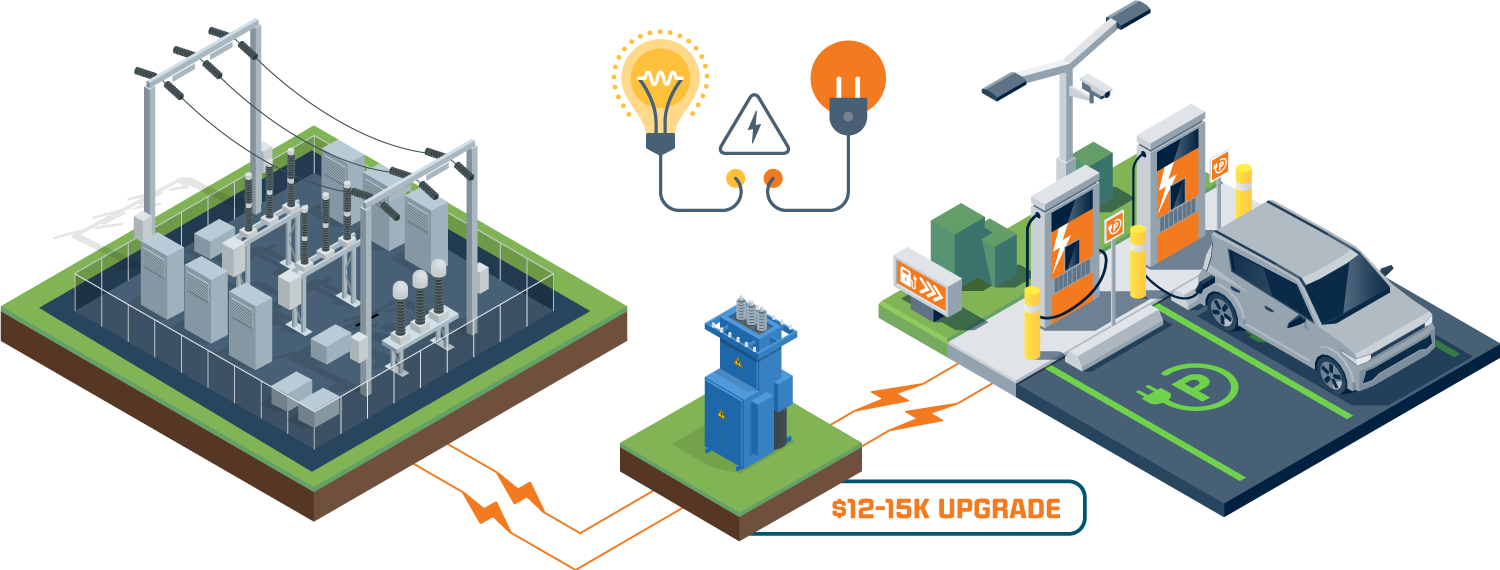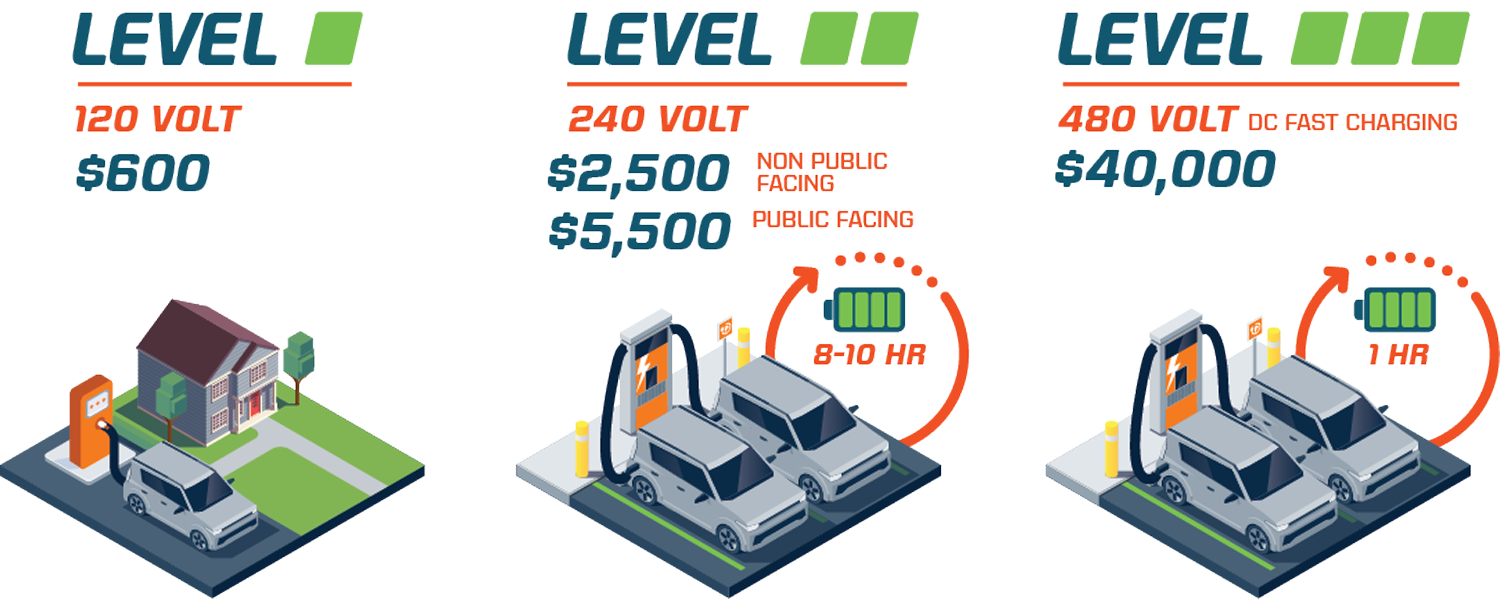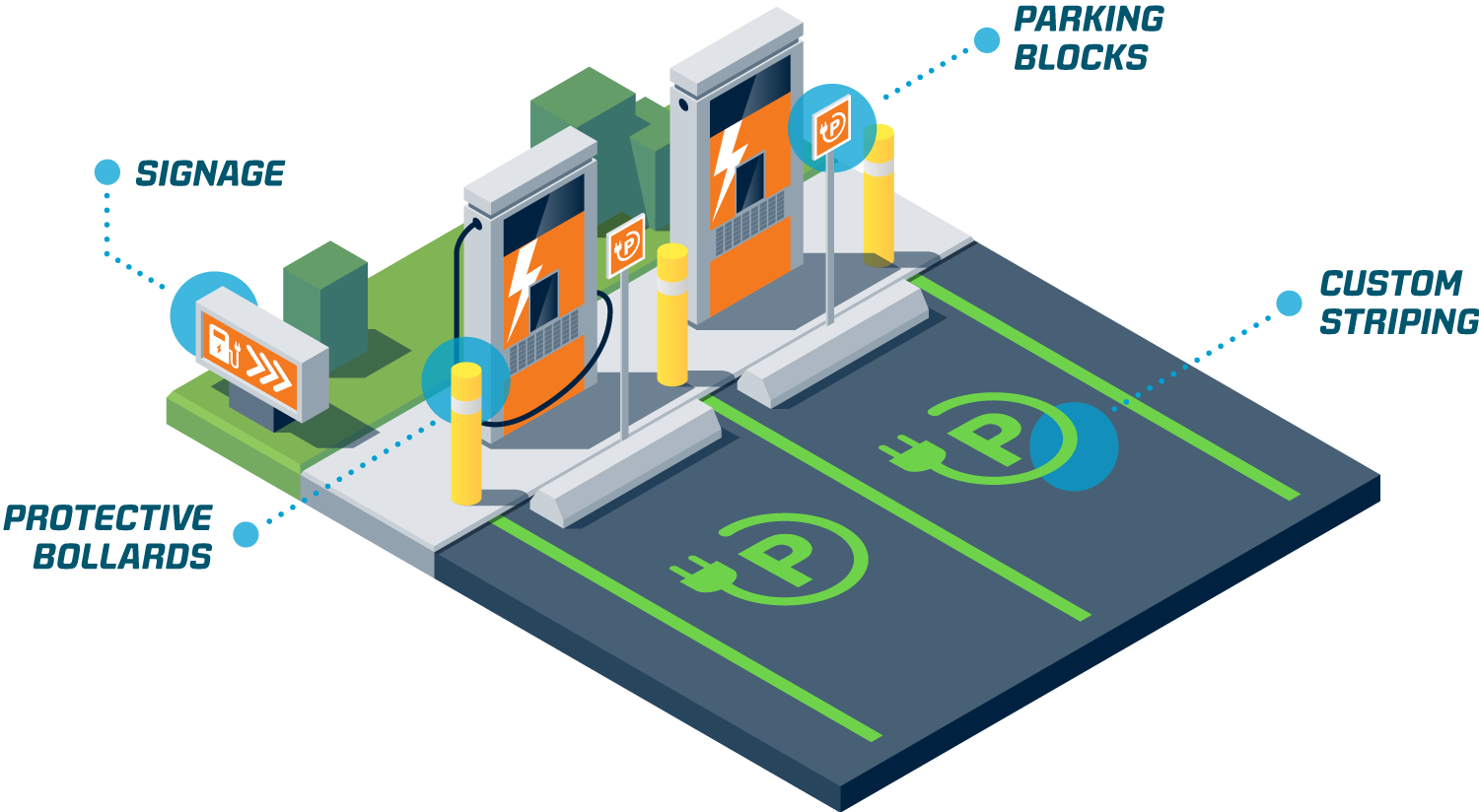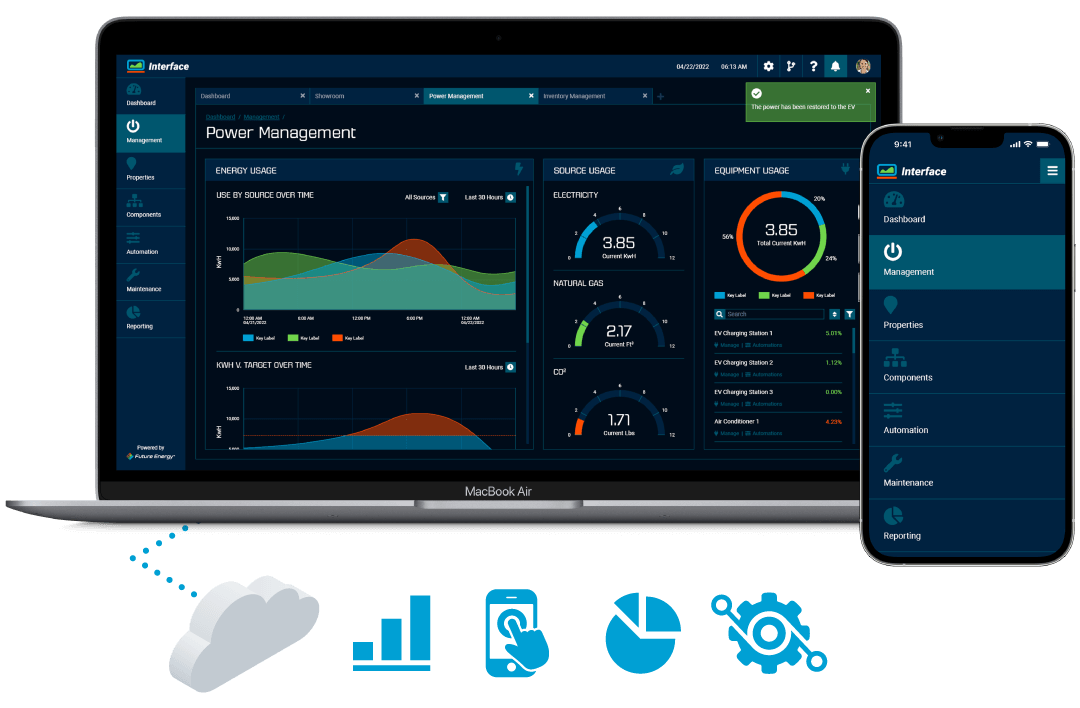How Much Do EV Charging Stations Cost? – Future Energy

There are 41,000 electric charging stations in the U.S. According to Grist, President Biden’s American Jobs Plan calls to construct 500,000 more. Like the drivers of gasoline-powered cars, the 1.4 million drivers of electric vehicles in the U.S. also have to “fill up.”
An electric vehicle (EV) charging station’s cost involves more than just installing a pump. To maximize value and minimize expense, a business must consider networking its station to qualify for many utility incentives. Moreover, a so-called “smart station” generates operational data to help manage power consumption and ultimately save money.
Mục Lục
Cost of a Commercial EV Charging Station
Average EV charging station installation cost for a level two station is around $6,000 per port, according to Future Energy’s data. But several factors affect commercial EV charging station costs: infrastructure, equipment, soft costs, subsidies, and software.
Factor #1: Infrastructure
A charging station supplies electricity to vehicles through its connection to the utility company. But these electrical conduits may require an upgrade, which can cost an average of $12,000 to $15,000, according to Future Energy.

Infrastructure is the primary variable in electric car charging station costs. For instance, connecting to an existing 240-volt circuit may require only a few hours of an electrician’s labor. But installing a dedicated 480-volt circuit could cost tens of thousands of dollars.
Why the discrepancy? An electrical upgrade carries associated expenses, including electrical panels, meters to monitor electricity use, or even an additional transformer. An upgrade may also involve boring, trenching, and cement work for power lines.
Because there is rarely a cookie-cutter solution, many businesses work with an approved, experienced partner like Future Energy, as a go-between with the utility company and various contractors.
Factor #2: Equipment
Unlike infrastructure costs, equipment charges are relatively static and depend on the level of charger.

Level one, or residential chargers, cost about $600 for a dedicated 120-volt circuit. However, a home charger is not adequate for commercial enterprises, which need level-two or level-three chargers to handle the load.
The highest specification for a commercial EV charging station is level three, or direct current fast charge (DCFC). Level three stations can charge a vehicle in an hour with 480-volt direct current. Level three stations cost around $40,000 for a single port.
Most commercial enterprises look to install level two charging stations, which run on 240-volt power and provide a compromise between power and cost. A level two electric vehicle charging station costs around $2,500 for a non public facing and $5,500 for a public facing dual-port station—it can charge two cars simultaneously in eight to 10 hours.
Factor #3: Soft Costs
Companies can add value by working with an experienced partner such as Future Energy in designing custom environments and packaging cost of commercial EV charging station extras.
For instance, a customer can choose custom striping of parking spots and signage to go with the charging environment, which can cost around $1,500 but will help elevate a company’s branding.

Also, a business may desire protective bollards—short, sturdy posts that protect the machinery—which cost around $400 each. Or a station may require parking blocks for around $600 apiece.
Future Energy works with a business’s marketing team to facilitate communication with printers, painters, and other contractors to customize EV charging packages for a company’s branding.
Factor #4: Software
To qualify for certain financial incentives, the owner of an EV charging station must install software that networks with the utility company. The utility company collects and analyzes data from networked charging stations to improve the overall system and learn about EV charging demand. Generally, the cost to host this information in the cloud is around $28 per month for each port.
Cost of Power Management
Beyond qualifying for incentives, businesses who use data wisely can save money in the long term. How? By monitoring peak load, the highest amount of electricity used in a set period, companies can monitor the rate on their electric bills.
Integrating Data Management
Future Energy’s smart solutions emphasize proactive management of electricity usage through a cutting-edge software platform known as Interface. Interface integrates EV charging stations with existing operational data, communicating with the utility company and managing peak load demand.

Interface helps monitor building management, lighting, digital thermostats, security cameras, and other systems. Thus a company will not inadvertently raise its rate by exceeding peak demand, potentially costing tens of thousands of dollars. Interface works passively in the background, sending real-time alerts.
Finding Incentives to Offset Costs
The sustainability movement has produced incentives and rebates at the local, state, and federal levels that help offset electric charging station costs.
For example, businesses can deduct up to 30% from their federal income tax for commercial EV charging station costs. Furthermore, a grant from the Environmental Protection Agency provides funds through the Electrify America plan, which distributes money from the $2 billion Volkswagen emissions settlement.
In addition, individual states provide incentives. A company can take a deduction on its state income tax and apply for various credits or grants.
Also, local organizations and governments offer monetary incentives. For example, the Joint Utility Commission of New York offers a program called Make-Ready that covers up to 100% of the cost of electrical infrastructure.
Partnership with Future Energy
Working with an approved partner such as Future Energy helps companies navigate the complex landscape of tax write-offs, rebates, and incentives to save money. In fact, Future Energy’s data indicates that commercial enterprises that plan wisely can stack incentives to cover up to 80% of their EV charging stations cost.
How much do EV charging stations cost? Future Energy recognizes an EV charging station as more than just a piece of hardware. Contact Future Energy to help steward your company from planning to managing a smart EV charging station, saving costs along the way.

Posted By















![Toni Kroos là ai? [ sự thật về tiểu sử đầy đủ Toni Kroos ]](https://evbn.org/wp-content/uploads/New-Project-6635-1671934592.jpg)


